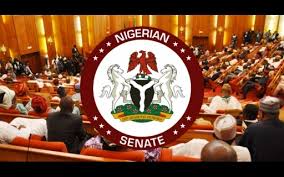By Clement Abayomi
Think about it. When Nigerians discuss democracy, the gist no longer finds expression in Abraham Lincoln’s _“government of the people, by the people, for the people”_. Instead, it goes straight to Aso Rock in forms of biting criticisms. What does this suggest for the pillars of Nigeria’s democracy, specifically Nigerian leaders? It is not untrue to say that a country’s National Assembly is the backbone of its governance.
The National Assembly is a significant arena where legislative decisions and actions take place. It is where parliamentarians gather to debate, negotiate, and speak for over 200 million Nigerians. Beyond these generalisations, this article seeks to elaborate on the role of the National Assembly in Nigeria. This will help correct possible erroneous assumptions about its function(s).
The National Assembly is enshrined in Section 4 of the 1999 Constitution and has two chambers: the Senate (109 members, three from each state plus one from Abuja) and the House of Representatives (360 members elected across federal constituencies). Think of it as Nigeria’s two-in-one combo meal: one part is equal for all states, the other is based on population size.
READ ALSO: National Assembly shifts resumption to October 7
The primary functions of the National Assembly are clear: members of the Assembly MAKE LAWS; they serve as “WATCHDOGS” to the government, and they REPRESENT the people. In fact, without them, democracy would stumble like a Goliath knocked down to defeat. This article intends to further articulate and elucidate the aforestated role(s).
The first and most visible role of the National Assembly is LAW-MAKING. According to Section 4(1) of the 1999 Constitution, legislative powers in Nigeria are vested in a bicameral National Assembly which comprises the Senate and the House of Representatives.
This legal mandate, as Okoro (2017) once said, empowers the National Assembly to enact, amend, or repeal laws necessary for the peace, order, and good governance of the country. The National Assembly’s effectiveness in law-making directly impacts national development. Within this role, Ifiemi and Abegunde (2016) explained that laws on electoral reform, public finance, and security have shaped Nigeria’s democratic journey. This responds to the Assembly’s centrality to institutional growth.
Going forward, the National Assembly performs an oversight function. In other words, it functions as a “watchdog” to the government. This means that the National Assembly monitors the activities of the government on behalf of the public to ensure that the government does not behave illegally or unethically. As Momodu and Matudi (2013) noted, the National Assembly ensures that Ministries, Departments, and Agencies (MDAs) comply with laws and utilize public funds judiciously.
READ ALSO: Ex police officers protest at National Assembly over poor welfare
This sort of power to supervise other governmental bodies is constitutionally grounded in Section 88(1) of the Nigerian constitution. The National Assembly therefore has the authority to investigate matters relating to federal administration. This function helps to expose inefficiencies and corruption in government.
Put in another way, the National Assembly checks (the excesses of) ministries, agencies, and parastatals allegedly embezzling money. Although, as some people claim, the National Assembly may not always investigate these excesses due to politicisation, yet the scandals are being projected in headlines so that Nigerians are aware of where their money went.
According to Dogara (2018), without robust oversight function from the National Assembly, Nigeria may reduce its legislature to a “rubber stamp” of the executive. That is, without the independence of the National Assembly, anything the Presidency brings or says will always influence the decision of the legislative arm. This, of course, risks democratic accountability.
Closely related to legislation is the representative function of the National Assembly, With 109 senators and 360 members of the House of Representatives, the National Assembly represents Nigeria’s diversity. This representative function means that both majority and minority voices are heard in national decision-making.
Dogara (2016), a former Speaker, argued that the legislature must bridge the gap between government and citizens. In this sense, the National Assembly has the duty of constantly gauging public opinion and also channeling the same into policy debates. Hence, the National Assembly becomes a pillar behind good governance and nation-building.
Ewuim, Nnamani, and Eberinwa (2014) reported that the foregoing triple role of law-making, representation, and oversight are paramount to accountability, transparency, and participatory governance. These aspects are the main thrusts of democracy. The Freedom of Information Act, passed in 2011, for instance, emphasised citizens’ access to government data. This, according to _PLAC, 2016_, is a major step in promoting transparency. The National Assembly by means of budget scrutiny, anti-corruption motions, and constitutional amendments help to safeguard the rights of the citizens.
READ ALSO: National Assembly adjourns proceedings to July 22 in honour of Buhari
The National Assembly is too significant to be ignored in political discourse. Amidst criticisms, the members’ role as lawmakers, watchdogs, and representatives of the people cannot be underestimated. However, to truly demonstrate Lincoln’s famous watchword for democracy: “government of the people, by the people, for the people”, it is pertinent for members of the National Assembly to understand that they are “for the people” if, as some Nigerians claim, they stop being “background singers” for the executive and start being the real voice of Nigerians.



